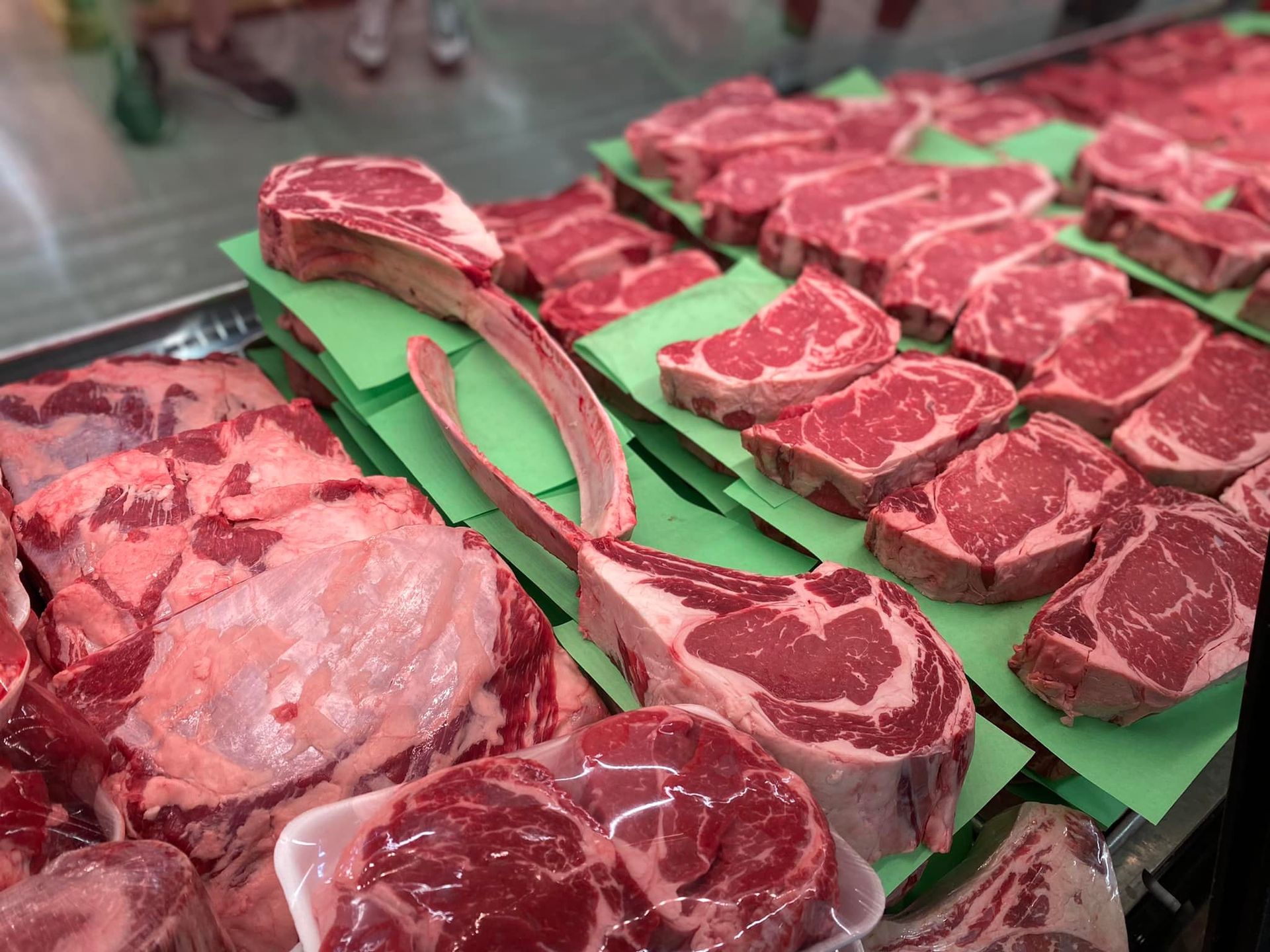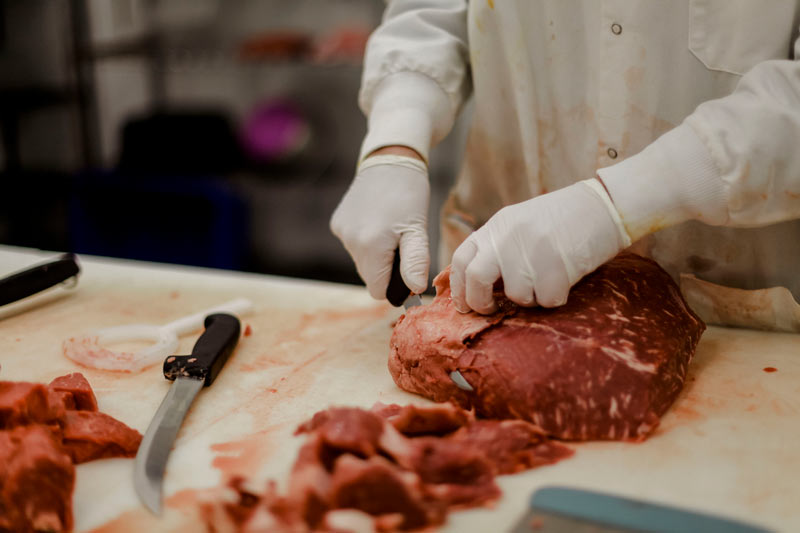Explore the Variety of Fresh Meats at Bagley Meat Market Edwardsville IL Today
Explore the Variety of Fresh Meats at Bagley Meat Market Edwardsville IL Today
Blog Article
Why Shopping at a Neighborhood Meat Market Guarantees Fresh, High-Quality Cuts
Buying at a neighborhood meat market provides distinctive advantages that usually go unnoticed by customers accustomed to larger retail chains. These markets offer direct accessibility to fresh, high-quality cuts, a result of decreased transportation time from ranch to respond to. This not only improves taste however also supports neighborhood farmers, fostering neighborhood partnerships and sustainable practices. Strenuous quality control measures make sure that each acquisition satisfies high criteria of safety and security and freshness. The effects of choosing local extend beyond immediate benefits, prompting a closer evaluation of what this option genuinely suggests for both customers and the neighborhood economic situation.
Benefits of Neighborhood Sourcing
In the world of food purchase, the advantages of regional sourcing stand apart prominently. By acquiring meat from neighborhood markets, consumers gain straight access to products that are frequently fresher and more savory than those discovered in larger, commercial grocery stores. Regional sourcing reduces the moment and distance food travels from ranch to table, which not only enhances preference but additionally protects nutritional worth.

Moreover, regional sourcing typically offers openness regarding the origins of the meat. Consumers can ask concerning the farming techniques made use of, pet well-being standards, and whether the meat is natural or grass-fed. This details empowers customers to make enlightened decisions aligned with their values.
Quality Control Criteria
Local meat markets typically adhere to rigorous quality assurance criteria that make certain the items supplied fulfill high security and freshness benchmarks. These criteria normally include various phases of the meat manufacturing process, from sourcing to handling and storage.
First, local markets often develop strict supplier standards, making sure that only reputable ranches and producers are made use of - bagley meat market edwardsville il. This minimizes the probability of contamination and promotes greater animal well-being requirements. In addition, lots of local meat markets carry out regular examinations to confirm that the meat is refined under hygienic conditions, better reducing wellness risks
Temperature level control is another essential aspect of top quality assurance. Regional meat markets frequently check refrigeration systems to maintain optimum storage temperatures, making certain that meat remains safe and fresh for usage. In addition, the implementation of traceability systems enables markets to track the origin of their products, giving transparency and responsibility.
Finally, team at neighborhood meat markets are commonly educated to recognize signs of putridity and recognize correct handling techniques. This commitment to quality assurance not only raises the total standard of the meat but likewise promotes customer trust fund, making neighborhood meat markets a dependable source for top notch cuts.
Sustaining Neighborhood Farmers
Sustaining neighborhood farmers is essential for promoting a lasting food system and improving neighborhood durability. When customers select to go shopping at regional meat markets, Our site they straight add to the source of incomes of farmers in their area. This not only supports the neighborhood economy yet additionally reinforces the agricultural field, making certain that it continues to be feasible and dynamic.


In addition, supporting local farmers fosters a sense of neighborhood and link in between producers and customers. It urges openness in food sourcing and infuses trust, as customers can develop connections with the individuals who increase their food. This direct connection eventually causes a much more involved and educated public, which is crucial for advocating for sustainable farming techniques in the future.
Lasting Practices
Lasting techniques in meat markets play a crucial role in advertising ecological stewardship and making certain pet well-being. Neighborhood meat markets often focus on sourcing their items from ranches that carry out sustainable and moral farming approaches. These techniques consist of rotational grazing, which assists maintain soil health and reduces carbon emissions, along with decreasing the usage of prescription antibiotics and hormones in animals.
In addition, regional meat markets usually emphasize openness in their supply chains. Clients are offered with info regarding the beginning of their meat, enabling them to make informed selections that line up with their values. By sustaining regional farmers that practice sustainable approaches, consumers add to the preservation of biodiversity and the decrease of transportation emissions connected with long-distance meat distribution.
In addition, lots of local meat markets participate in waste reduction approaches, such as using every component of the animal and advertising off-cuts that might or else go unsold. By fostering a more sustainable method to meat consumption, these markets not only offer top quality items but likewise contribute favorably to the environment and animal well-being. Fundamentally, buying at a regional meat market aligns consumers with a more comprehensive movement in the direction of moral and responsible food sourcing.
Customized Consumer Service
Buying at a meat market often includes even more than simply the items provided; it is likewise concerning the experience and the relationships developed in between consumers and staff. Customized client solution is a hallmark of regional meat markets, setting them in addition to bigger grocery chains. Knowledgeable personnel take the time to understand private client choices, making certain that each go to is tailored to certain requirements.
Consumers profit from skilled suggestions on cuts, food preparation methods, and preparation ideas, cultivating a sense of count on and loyalty. This customized interaction enables consumers to ask questions and seek referrals, leading to informed purchasing choices. Staff members usually remember routine customers and their choices, developing an inviting atmosphere that cultivates area Read Full Report ties.
In addition, personalized service prolongs to unique requests, such as custom-made cuts or certain prep work approaches, which larger retailers may not suit. This level helpful site of focus strengthens the commitment of neighborhood meat markets to top quality and customer satisfaction.
Essentially, personalized customer support not only boosts the buying experience but additionally makes certain that clients leave with the ideal items suited to their cooking requirements, making every see a satisfying one.
Conclusion
Supporting regional farmers cultivates neighborhood partnerships and strengthens the local economic climate, while lasting practices contribute to environmental stewardship. Furthermore, tailored customer service improves the buying experience, making neighborhood meat markets a preferred choice for customers seeking both quality and ethical factors to consider in their food sourcing.
The ramifications of selecting neighborhood expand beyond prompt advantages, motivating a closer assessment of what this option really suggests for both consumers and the regional economy.
Sustaining local meat markets also contributes to the local economy. Local meat markets frequently keep track of refrigeration systems to maintain optimal storage space temperatures, making certain that meat stays risk-free and fresh for usage.Regional farmers are typically a lot more attuned to the particular requirements of their communities, increasing and growing crops animals that straighten with regional tastes and preferences. Sustaining neighborhood farmers promotes community relationships and reinforces the neighborhood economy, while sustainable practices add to ecological stewardship.
Report this page